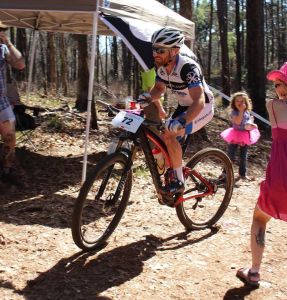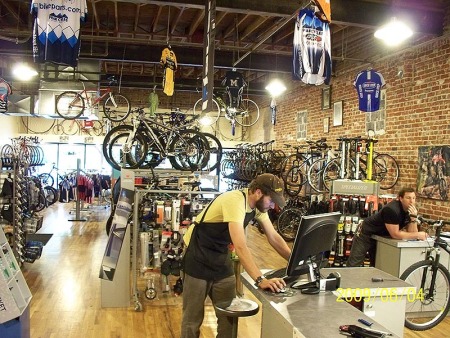 For those of you preparing for endurance trail races, we know that you are getting ready to ride long, get dirty, and have the time of your life. And while some you may have trained through the winter months, many have not. So we warn you winter sofa spuds that the alluring call of gorgeous spring days will tantalize you to ride too hard, too fast. This could lead to injuries, poor performances, and an overall unhappy 2016 cycling season.
For those of you preparing for endurance trail races, we know that you are getting ready to ride long, get dirty, and have the time of your life. And while some you may have trained through the winter months, many have not. So we warn you winter sofa spuds that the alluring call of gorgeous spring days will tantalize you to ride too hard, too fast. This could lead to injuries, poor performances, and an overall unhappy 2016 cycling season.
Here are some ways not to meet that unfortunately end:
Endurance trail cyclists are on the cusp of some of the most favored mountain bike races in Colorado and the American west — races like Rocky Mountain Endurance Series, Thaw Massacre, 18 Hours of Fruita, Desert RATS Classic, 12 Hours of Mesa Verde, and The Half/Original Growler. And being success in these races requires you to closely monitor early season training.
Key points to keep in mind include training intensity, duration, and frequency. There are coaches and coaching plans to assist with specific and customized training. Or, you can create your own training program.
Regardless of your approach, for precise bio feedback to align your training plan, you’ll need to use cycling accessories available to you – such as power meters, GPS computers, and/or heart rate monitors. Early season training lends itself to “false” feedback. Meaning, because you may be fresh, your perceived effort on the bike may be low causing you to push too hard, too soon. As a result, your training suffers later due to increased recovery time or even injury. By monitoring your efforts with specific data, you objectively know when you are pushing beyond your targeted indictors, as well as when you aren’t pushing hard enough. This allows your body to adjust to increased training load over time and in a manner that meets your 2016 cycling season goals.
Now, just because you can’t go all-out in your early training, doesn’t mean that you can’t build the mental toughness and focus that you will need during an endurance race. As described in the post, Developing Mental Toughness: Are you Tough Enough?, “mental toughness is your ability to persevere in the face of challenges, to keep going even when things get hard, and to have an unrelenting commitment to your goals. When you develop your mental toughness, obstacles are only temporary and one bad performance doesn’t shake your belief in your ability.”
For more information, don’t hesitate to visit our website or stop into our store – Peak Cycles in Golden, Colorado. We have tons of advice, as well as bikes, bike parts, cycling accessories, and cycling apparel.



 Posted by staffwriter8
Posted by staffwriter8 
